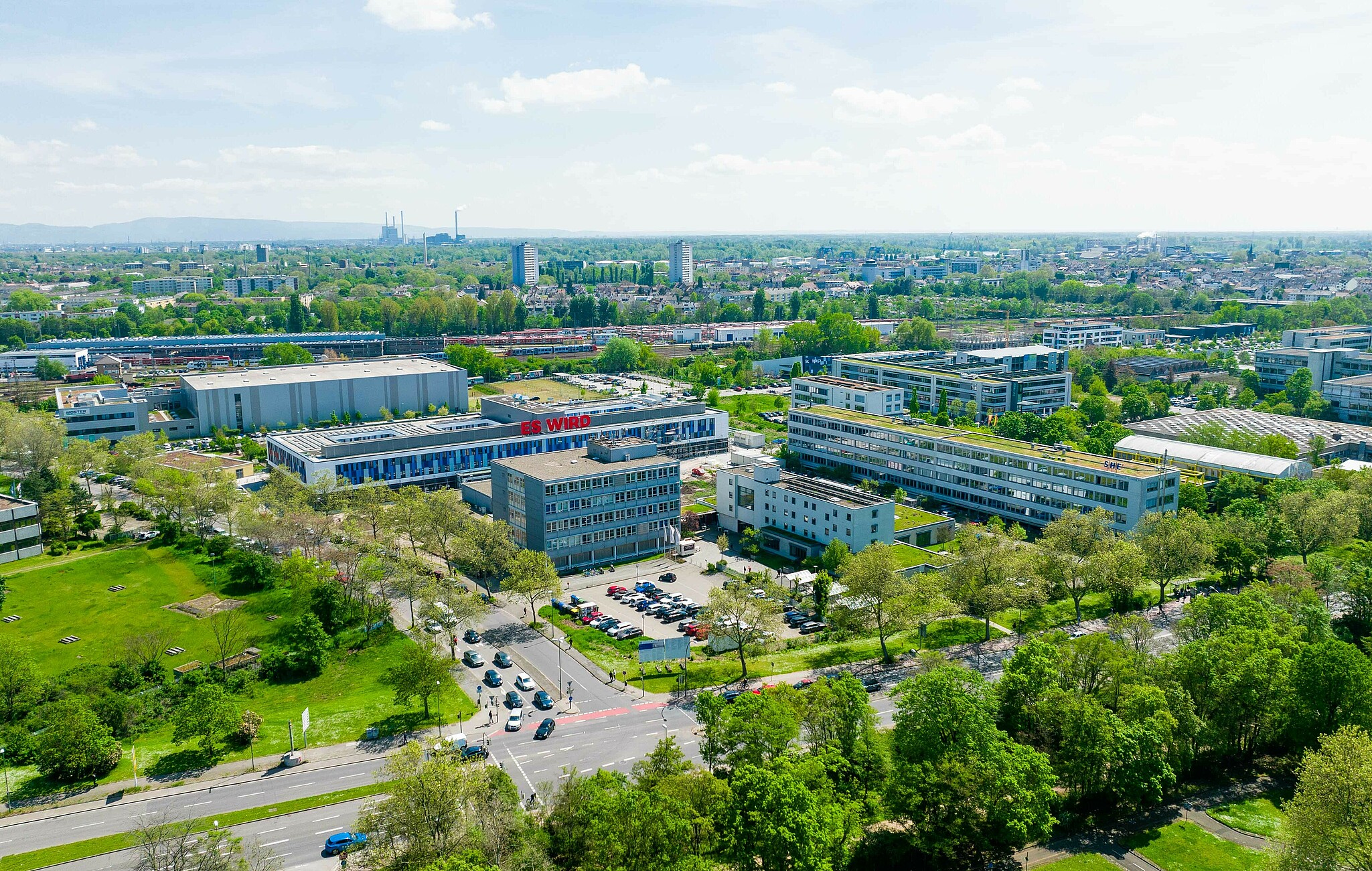Citizen consultation planned for early 2022
Ludwigshafen is still a young and, above all, rapidly growing city. Over the past seven years, the population has risen by 10,000 people from around 167,000 to around 177,000. More inhabitants also means that more living space is in demand.
For this reason, the city of Ludwigshafen has commissioned the Ludwigshafen University of Business and Society to conduct a comprehensive study on housing needs in Ludwigshafen. This will reveal the current housing situation of various population groups and how satisfied these population groups (e.g. families, single parents, single people, students, older people, people with a migration background) are with their current housing situation, but also which aspects should be taken into account when planning new apartments and residential areas. The housing needs analysis is therefore not only about the quantitative aspect of how many apartments are currently lacking in Ludwigshafen and should be built in the coming years, but also about qualitative aspects of urban planning and housing construction.
The concept and procedure for the study were explained by Beate Steeg, Head of Social Affairs, Prof. Dr. Ellen Bareis, Vice President of HWG LU and Head of the Social Work Research Centre, Philipp Tachkov and Jan Sichau from HWG LU as well as Dr. Volker Spangenberger-Kerle, Head of Urban Development, and Werner Appel from Urban Development at a press conference on Friday, 10 September 2021.
"The planned housing needs survey serves to obtain a differentiated overview of the roughly summarized topics of housing satisfaction and relocation intentions of the Ludwigshafen population for different population groups. The results of the study on these qualitative aspects of the housing market are intended to supplement the available data on quantitative housing requirements for the housing policy discussion," explains Beate Steeg, Head of Social Affairs. "I am also very pleased that we have been able to gain a strong partner for this important topic in our university."
These and similar questions are to be clarified by the study: What is the current housing situation and housing satisfaction, broken down by defined population groups? What ideas do defined population groups have about the quality and location of desirable and affordable housing? In the case of relocation plans: What are the most important reasons for deciding to move? How could the demand for housing develop in relation to defined population groups in Ludwigshafen as a whole by 2030?
In order to find answers to these questions, the study concept provides for the following steps: In a first step, the current state of knowledge is reviewed using data from the city administration, relevant projects and the scientific literature. This is followed by interviews with relevant stakeholders (from the city administration, housing industry, civil society, social advice centers and socio-spatial institutions) on the questions posed in the study. The next step is a qualitative survey of representatives of various socio-demographically defined target population groups in order to get to know their views and requirements on the topic of housing in Ludwigshafen in detail. Finally, the core of the study is a citizen survey, which uses a written (and online) questionnaire to obtain the opinions of Ludwigshafen residents and provide insights based on a broad database. This will be supplemented by specific participation formats for those residents who are difficult to reach through traditional surveys.
Prof. Dr. Ellen Bareis, sociologist and Vice President of the university, emphasized: "Housing is one of the most pressing issues for the future, in which interdisciplinary research and social innovation must be combined. Tackling this issue for Ludwigshafen together with the city is a great opportunity."
The results of the study will lead to concrete recommendations for action in local politics. It is also planned to incorporate the results into ongoing land use planning and future development plan procedures.
The city of Ludwigshafen is receiving funding for the study from the "Experimental Housing and Urban Development" (ExWoSt) program. This program subsidizes innovative planning and measures on important urban development and housing policy issues with a grant of 90 percent of the eligible costs. The aim is to further develop urban development and housing policy and to transfer knowledge.
Since January 2019, the new ExWoSt funding program of the Rhineland-Palatinate Ministry of Finance "Grant funding for investment preparation measures by municipalities to strengthen social rental housing construction" has been in place. This funding framework also allows for basic research into general knowledge of the housing market that is not directly related to specific construction projects.
Information on the topic is available on the Internet at www.ludwigshafen.de.




